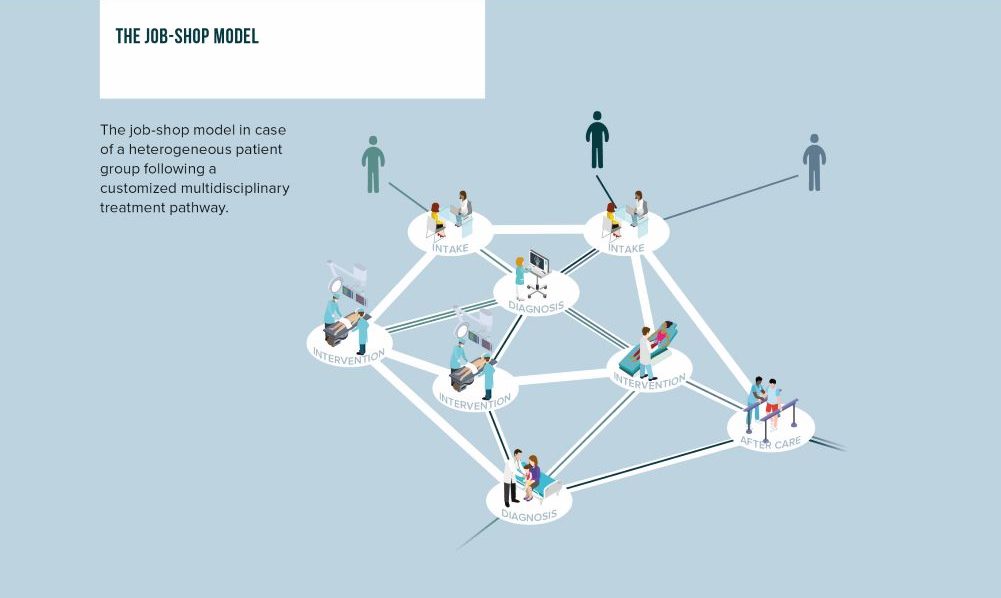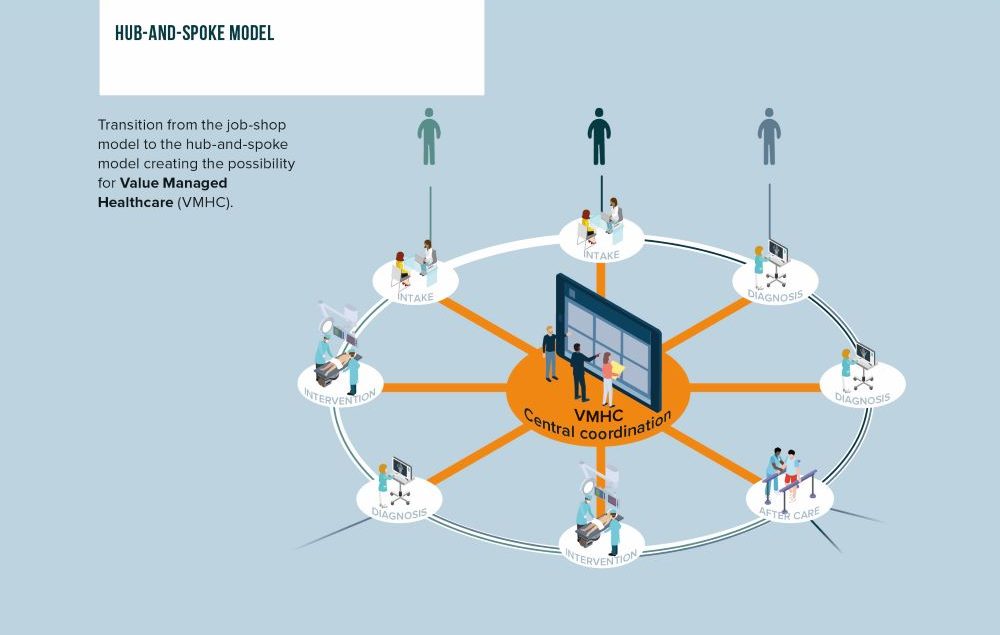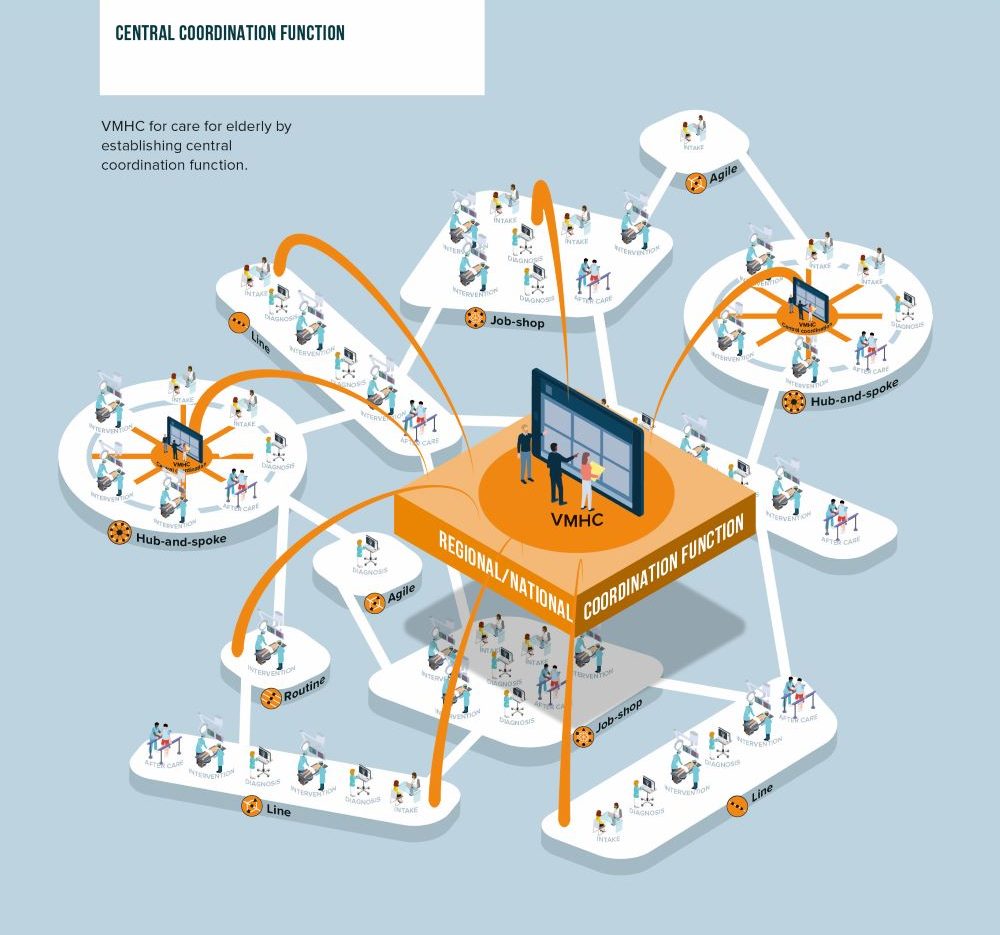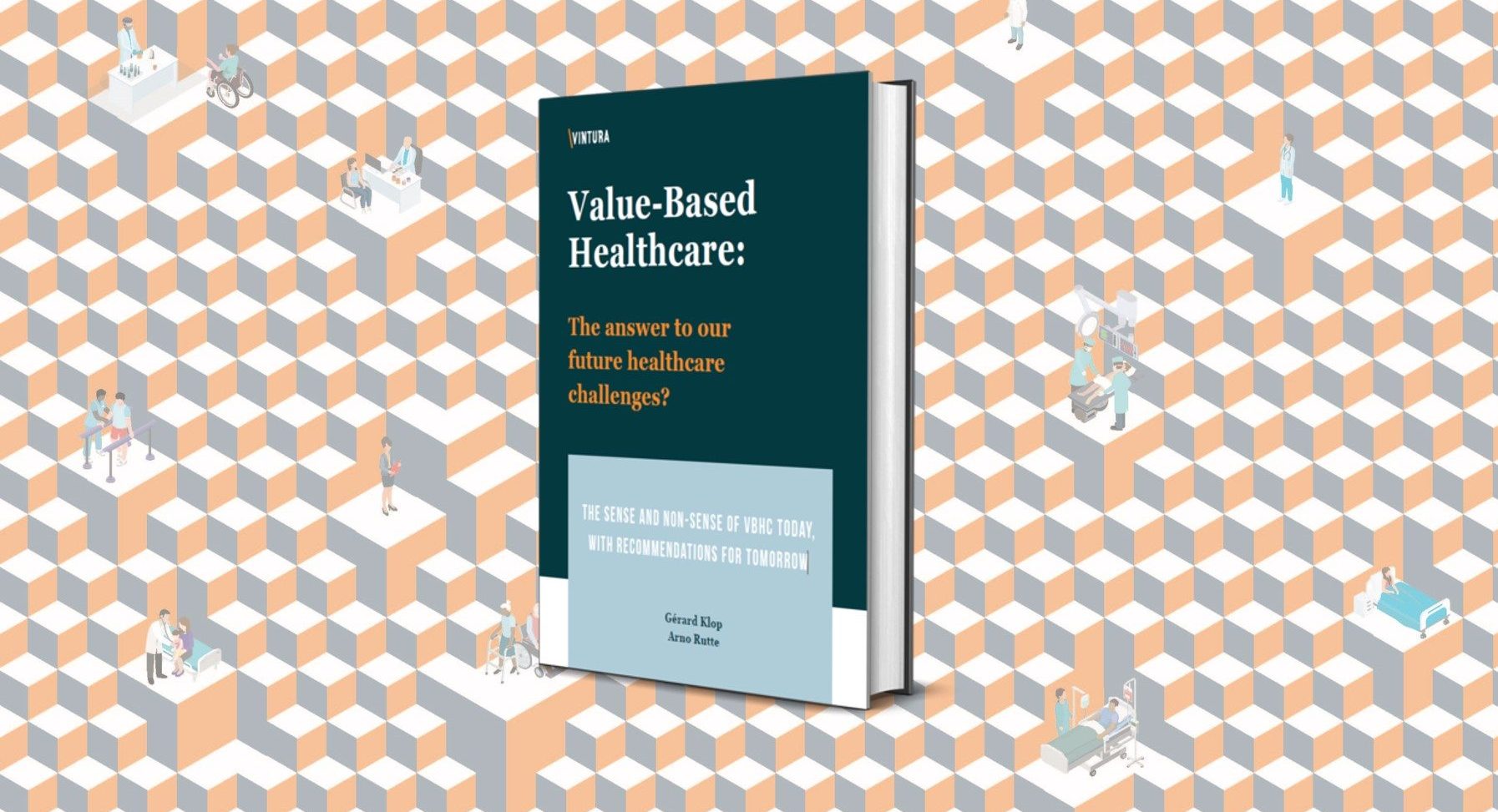VBHC in its purest form (outcome based) in fact only really works in for specific patient populations, specific indications and in specific organizational models. The care for elderly people for sure does not meet these characteristics.
There is no single unambiguous care process
Because of the heterogeneity and comorbidities that characterize the elderly patient, there is never a single medical condition, nor a single care pathway. This means that elderly patients with multiple health issues are by definition part of a layered job-shop model.
There is no standardized outcome
Heterogeneity and co-morbidity makes standardization and normalization of outcomes complex. The more complex and older the patient, the more important it becomes not to focus on the best outcome of a single intervention, but on an overall outcome tailored to patient’s needs, that considers all factors in the patient’s situation.
elderlycare organized according to job-shop model
Elderly patients in many cases are following care pathways structured according to a job-shop model, with limited oversight and coordination leading to sub-optimal results, mistakes, under- and over-treatment etc. Given the growth of the elderly population we need to look for better solutions to keep our healthcare accessible, affordable and of proper quality: value managed healthcare (VMHC).

VMHC first level: coordination instead of integration
VMHC focuses on coordination rather than integration of care (VBHC) around one medical condition. The main difference is not the organization of the care itself, but the coordination to guide the patient in their specific personal situation to the best suited care. In this way the pathway is coordinated and managed towards a tailored relevant patient outcome. One could start with coordinating care around one medical condition of the co-morbid elderly patient, for example Parkinson.

coordination of multiple medical conditions at macro level
The next level of VMHC is to coordinate multiple diseases at macro level. In this case the central coordination could interact with a disease specific coordination point: VMHC at micro level. Given the heterogeneity and co-morbidity of the elderly patient it is hard to compare an individual patient outcome with a pre-defined benchmark (VBHC). However, as soon as VMHC is organized at large one could derive general correlations and insights on a patient group or population level, herewith improving care for future generations.

Conclusion
Care for the elderly is an enormous challenge. If we do not organize and optimize this in the right way, people will get lost in the system, we use way too many resources, we do not learn fast enough and we do not create integral quality of life for these vulnerable patients. Both the numerator and denominator of the VBHC equation are not properly addressed. And both integration of care and outcome based optimization are not the answer.
Coordination, however, is a solution. Creating a health-buddy that monitors my overall well-being, that selects the best care providers and that communicates with all the parties involved. In this case value is generated in multiple ways:
- Care providers can focus on core-activities in stead of spending resources on managing care networks
- The patient only receives care that is relevant for them, not medical interventions that only solve a part of the puzzle
- Better coordination prevents duplication, unnecessary diagnostic and communication errors
- Patient will not get lost in the complex care system, they can rest assure that somebody looks after them and guides them on their path.
In this way VMHC certainly contributes greatly to the VBHC equation…
DOWNLOAD OUR LATEST VBHC REPORT
In 2020/2021 we have been working intensively on the latest key insights on VBHC. We created a comprehensive report that provides an integral view on the applicability of VBHC in general, with specific deep dives into elderly care and pharma. Theory, frameworks and general observations are accompanied by a selection of latest real life case studies to make a direct link to practice.
Let’s discuss
Inspired to share your thoughts and experiences? Or would you like to learn more about our vision on Value-Based Healthcare and the value it has to tackle current and future healthcare challenges? We would be interested to hear from you. Please feel invited to contact Noël van Oijen and Gerard Klop.



